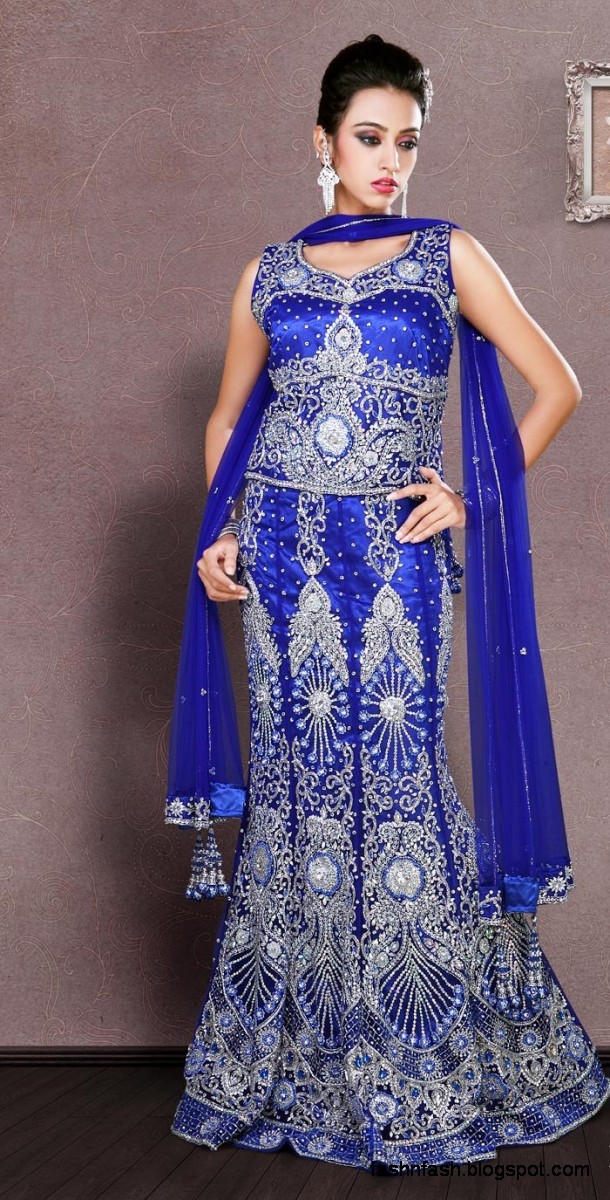Bridal Pakistani 2013 Dresses Suits Mehndi Designs Pic Jewellery Mehndi Lehengas 2013
Source:google.com
Pakistani Marriage Customs
Pakistan, an Islamic country located in South Asia and the Greater Middle East, has a great culture with rich customs. A Pakistani wedding is a great feast of fun, wearing fancy clothing, merriments, and celebrations. It is celebrated with great fervor. A Pakistani wedding is followed by several pre-wedding customs and rituals. Men and Women wear Pakistani Clothing of various styles and fashions.
It is important to note that some of the customs followed in Pakistani weddings have no foundation in Islam. However, the Pakistani culture has adopted those ceremonies and traditions from the Hindu culture.
Mangni is the engagement ceremony that marks the formal engagement of couple. The small ceremony takes place in the presence of a few important members of would-be bride & groom’s family. Prayer and blessings for the couple are recited and the wedding date is decided in Mangni.
Mayun is custom of the bride entering into the state of seclusion eight to fifteen days before the wedding. She’s made free of all the chores and errands around the house. The bride and groom are not allowed to see each other after the Mayun; bride is not allowed to leave her house. The beautification rituals begin during this time.
Uptan is a paste made from turmeric, sandalwood powder, herbs and aromatic oils, which groom's mother brings for bride. She blesses bride and applies “uptan’ to the bride's hands and face. Groom's sister also does the same, and a thick string called a “gana” is tied to the bride’s arm. “Uptan” is applied to the bride's skin each day leading up to the wedding. Similar ceremony is held for the groom, where bride's mother, sisters, cousins and friends bring “uptan” for groom and rub it on his skin.
Dolki is a popular ceremony of singing traditional wedding & popular songs accompanied by two or three percussion instruments Dolki being the main. The girl is officially treated as bride (dulhan). She wears traditional Pakistani yellow outfit. Her brothers, sisters, and cousins bring her (bride) in the dholki party.
Rasm E Mehndi (Henna Party) takes place a day before the wedding. It’s a ceremony mainly of women. They apply Mehndi (Henna) to the bride's hands and feet, sing, dance, and bless the bride. Sadka (warding off evil through charity) is performed on the bride i.e. donating money circling three times on the bride’s head. Traditionally mehndi was brought by groom's parents. Mehndi (Henna) is applied in beautiful floral designs and sometimes groom's name is written in designs. After the ceremony dinner is organized for the guests. Traditionally, the bride is not allowed to take part in the celebrations and keeps her face hidden in veil. Rasm E Mehndi is organized for grooms also in some parts of Pakistan.
Baraat is procession of family, relatives, and friends of groom that accompany the groom to bride’s home for official wedding ceremony. Groom makes his way to the bride's home on a richly decked horse or in a car and “baraat” follows in different vehicles. Groom is given warm welcome by the bride’s family with flower garlands and rose petals. Family and relatives of the groom and the bride exchange glasses of juice or sherbet along with money. Guests are welcomed by the bride’s sisters by playfully hitting them with a stick wrapped and decorated with flowers.











Nice Collection nice Dresses
ReplyDelete